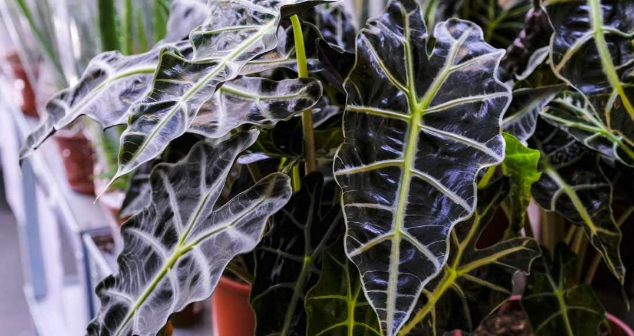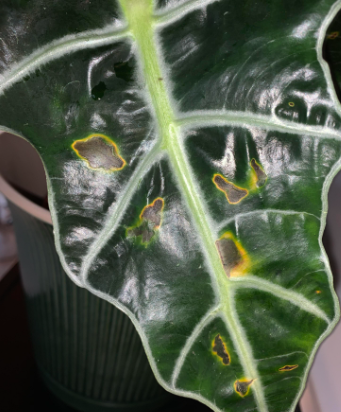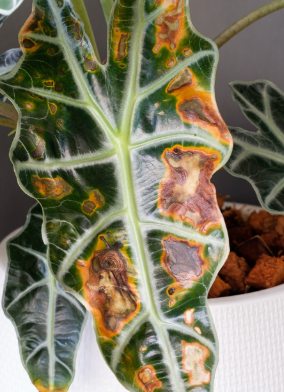Alocasia ‘Polly’ Plant
Alocasia ‘Polly’ (Alocasia amazonica) is a tropical plant growing 2-3 feet tall, hardy in USDA zones 9-11, with moderate growth in moist, well-drained soil, requiring indirect light and high moisture, and it is neither edible nor medicinal.

Habit
Tropical
Height
2-3 ft
Growth
Moderate
Soil
Moist, well-drained
Shade
Indirect light
Moisture
High
Edible
No
Medicinal
No
Origin
Southeast Asia
Climatic Condition
Tropical, Humid
Temperature (°)
20-30
Humidity (%)
60-80%
Potting media
Peat+Perlite
Fertilizers
Organic Fertilizers
Watering
Regular, Keep Moist
Plant Weight
200-400 g
Flowering Time
Rarely Flowers
Soil Ph level
6.0-7.0
Water Ph level
6.0-7.0
Soil EC
1-2 dS/m
Yield Per Plant
Ornamental
NPK ratio
20:20:20
life Span
1-2 yrs
Health Benefits
Suggested Grow Media or Potting Mix ?
40% peat, 30% perlite, 30% bark
Suggested Fertigation/Fertilizers
Fertilize every 2 weeks with a balanced fertilizer.
Common Diseases and Remedies
HEALTH BENEFITS
Alocasia Polly, also known as African Mask or Elephant Ear plant, is primarily known for its aesthetic appeal as a houseplant, but it does have some indirect health benefits. These benefits are mostly related to the environment in which it's placed rather than direct medicinal uses:
- Air Purification: Like many houseplants, Alocasia Polly can help purify indoor air. It may absorb toxins such as formaldehyde and benzene, promoting cleaner air and potentially benefiting respiratory health.
- Increased Humidity: Alocasia Polly, being a tropical plant, releases moisture into the air through a process called transpiration. This can increase humidity in the room, which may help improve skin health and alleviate respiratory issues like dry sinuses, especially in dry indoor environments.
- Mental Well-being: Having plants in your space can reduce stress, improve mood, and enhance overall mental well-being. The presence of Alocasia Polly adds a touch of nature, which can contribute to feelings of calm and relaxation.
However, it’s important to note that the plant is toxic if ingested, so it should be kept out of reach of pets and children. Always ensure proper care and handling when keeping Alocasia Polly as a houseplant.

